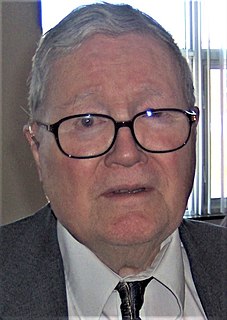Top 5 Quotes & Sayings by Gordon Tullock
Explore popular quotes and sayings by an economist Gordon Tullock.
Last updated on April 14, 2025.
Characteristically, however, the overthrow of the dictator simply means that there will be another dictator. ... the policies they follow will probably not be radically different. If we look around the world, we quickly realize that these policies will not be radically different from those that would be followed by a democracy either.
I believe I have demonstrated that the voters are characteristically ill-informed when voting on reducing social costs. Furthermore, their primary concern is with wealth transferred to themselves, rather than with social cost efficiency. Logically, this would mean that democratic government would be inefficient in reducing social costs.
The case may very well be that Congress is willing to restrict campaign contributions because it has these privileges. It is true that incumbents normally get larger contributions than their challengers. The opponents at least get some money, but they do not have access to the perquisites of the incumbent.
No doubt exists that rent seeking in general leads to serious inefficiencies in this direct sense, but its indirect damage is even worse. Drawing the bulk of intelligent and energetic people in society into activity that has no social product, or may have a negative social product, is more important in explaining the stagnation of these societies than the direct social cost of the rent seeking.
A much more radical conclusion . . . that, so far as I know, is shared by only a very few students of public choice [is]: that government employees or people who draw the bulk of their income from government by other means should be deprived of the vote . . . It is another example of the opening up of alternatives for investigation and the presentation of new conceivable policy options characteristic of public choice, rather than a policy that all its students favor.





















